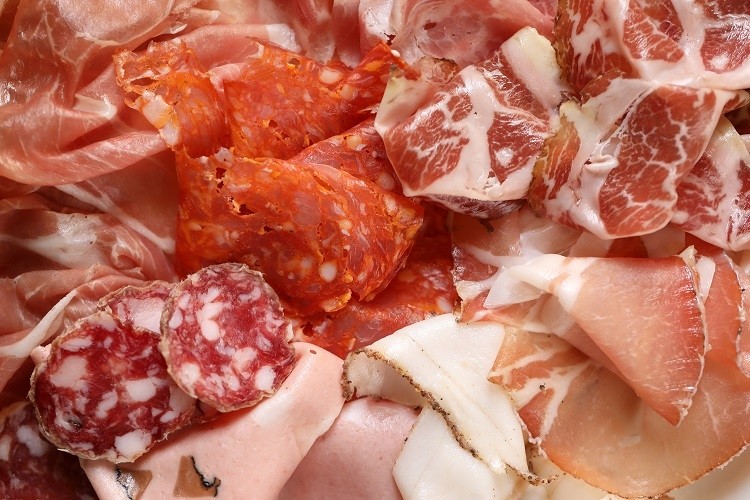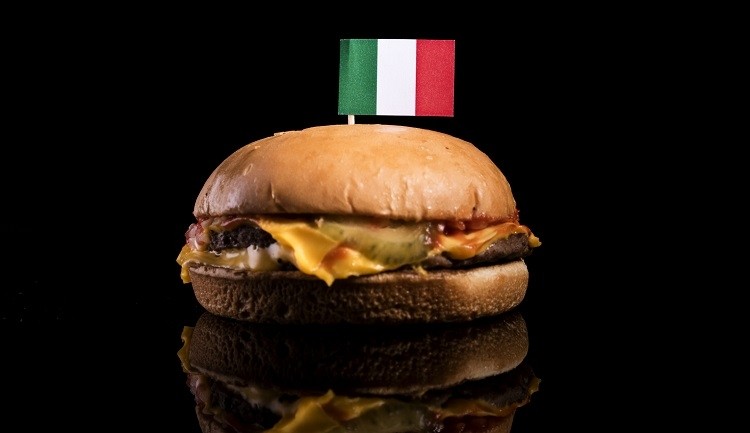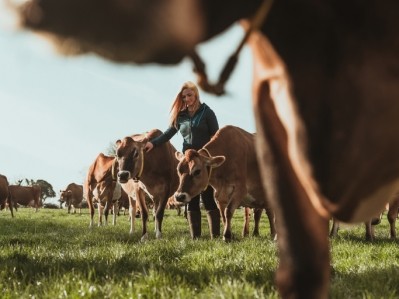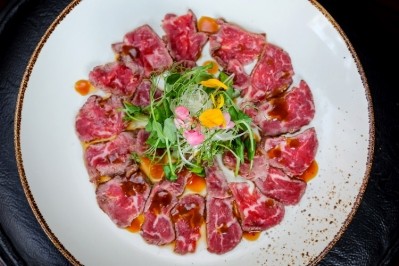No more ‘vegan mortadella’? Why ‘meaty’ names for plant-based could get the chop in Italy

A new law has been proposed in Italy to ban ‘tofu steak’, ‘veg ham’ or ‘vegan mortadella’ from reaching shelves due to their ‘meaty’ denominations.
According to the proposal, the goal is to protect ‘national livestock heritage’, public health and consumer interests. If passed, the law would apply to food products containing vegetable proteins manufactured and marketed in Italy.
The proposal has been met with mixed reactions: some applauding the move as a welcome acknowledgement of Italy’s meat producing sector, and others concerned it represents a ‘step backwards in the fight to tackle climate change’.
Protecting Italy’s cultural heritage
In law proposal No. 746, presented to the House of Representatives on 29 December 2022, it was put forward that plant-based foods should be banned from using sales denominations that refer to meat or meat-based products – a practice that ‘takes advantage of their reputation’.
The bill aims to protect Italy’s livestock production and clearly distinguish meat products from their plant-based alternatives. “The objective is… to restore correct market conditions among all operators in the food sector: completely different products should be indicated with completely different names,” noted the bill authors.
Trade association ASSICA told us it was involved in the bill proposal. According to the membership body – which represents Italian companies working in pork and beef salumi, pork slaughtering, and the processing of other meat-based foodstuffs – plant-based imitations and their denominations raise ‘fundamental’ questions about consumer information, cultural heritage, and the ‘power of modern marketing’, “which blithely mixes big business interests and values”.
ASSICA said it acknowledges and recognises that a segment of Italian consumers want to see more plant-based products on the market, but the trade body expects ‘fair’ and ‘consistent’ marketing that respects the work carried out by generations of farmers and deli meat processers across the country.

“Meat imitation producers are… pushing for a marketing bias that values form over substance,” a spokesperson for the trade association told FoodNavigator. If Bresaola, mortadella and pancetta are protected by PGI and PDO geographical indications and quality schemes, then the denominations of more common goods that reflect Italian heritage should also be protected, we were told.
The ‘boom’ in marketing of similar products – made with plants, rather than meat – is putting common heritage at risk, the spokesperson stressed.
“For ASSICA, this is not a fight against, but a call for the rightful acknowledgement and respect for the work of thousands of Italian farmers and deli meat manufacturer workers. They keep our rural areas alive while providing our citizens with quality meat products enjoyed and consumed by all generations as part of the Italian culinary heritage and balanced diet.”
New names for new products?
Back in 2020, the issue of ‘meaty’ denominations for plant-based alternatives reached the European Parliament. Amendment 165 proposed to prohibit terms such as ‘burger’, ‘steak’, or ‘escalope’ for vegetarian and vegan products.
At the time, it was suggested vegan and veggie burgers could be renamed ‘vegetable discs’, and sausage analogues marketed as ‘veggie tubes’.
The European Parliament voted against the amendment, which means that across the bloc ‘vegan burgers’ are well and truly still on the table. Since that time, ASSICA has been asking the Italian Government to take matters into its own hands and propose a national initiative banning ‘meaty’ terms for plant-based alternatives.
Just as ‘veggie tubes’ and ‘vegan discs’ were suggested as new terms for meat analogue products, ASSICA too wants plant-based alternatives to get creative with terminology.
“The imitation industry has taken advantage of a European loophole to hijack these powerful common denominations in its favour. The plant-based sector is claiming to be creative and innovative, but it should also be fair.”
The spokesperson continued: “They have, especially in the current climate, an opportunity to create new products with new denominations, to gain consumers’ recognition and to achieve financial success.
“How can a plant-based lobby claim that it is not misleading the consumer if it points out that they need meat denominations to convey information about their product’s own texture and taste?”
For ASSICA, if a product claims to be different from another, then it should have its own name or denomination.
“An industry striving to become mainstream does not need to build its glory by focusing its marketing on existing products and on a fight against them.”
The nutrition debate
Another concern raised by the deli meat trade association is that such marketing of non-meat products could give consumers the impression that meat and plant-based alternatives have identical nutritional values.
“Substitution is a powerful marketing concept that can reassure consumers they are simply replacing a product with another,” the spokesperson explained. “However, while agreeing that plant-based products can constitute a source of protein, they cannot guarantee the same nutritional intake as the animal products they are trying to imitate.
“In addition, we cannot accept the representation of these ultra-processed products as healthier options given that they are often high in additives, salt, sugar and fat.”

This argument, according to ‘food awareness’ organisation ProVeg International, is ‘misleading’. “Partly because plant-based alternatives are nutritious and have less cholesterol than conventional meat products, but also because they have a number of other advantages over conventional meat products,” said ProVeg VP Jasmijn de Boo.
ProVeg argues that plant-based meat alternatives can be healthier than their conventional counterparts because they tend to contain no cholesterol, more complex carbohydrates, healthy fibre, and are free from antibiotic residues, hormones, heavy metals, and pathogenic bacteria & viruses.
Potential environmental implications
Protesting the law proposal, some have raised concerns banning ‘meaty’ names for plant-based products would have negative environmental implications.
ProVeg, for example, has described the bill as ‘misleading and backwards’. “Plant-based foods emit half the amount of greenhouse gases as animal-based foods so we need to introduce policies that actively encourage people to switch to more flexitarian diets,” said VP de Boo.
"This bill, which seeks to restrict labelling of plant-based meat alternatives, is taking a step backwards in the fight to tackle climate change.”
ProVeg’s statement coincides with findings from a new study, published in ‘Natural Climate Change’ this week, that global food consumption alone could add nearly 1 °C to warming by 2100. According to the US-based researchers, 75% of this warming is driven by foods that are high sources of methane, including ruminant beef.
ProVeg is urging the Italian Government to reject the bill. Local animal welfare organisation Essere Animali, too, is calling for its dismissal.
“Italian consumers are introducing more plant-based foods in their diets, many of them for environmental reasons. This proposal is an attempt to slow the growth of this market and derail the EU plans for a sustainable food system,” said Claudio Pomo, head of development at Essere Animali.
Source: Natural Climate Change
‘Future warming from global food consumption’
Published 6 March 2023
DOI: https://doi.org/10.1038/s41558-023-01605-8
Authors: Catherine C. Ivanovich, Tianyi Sun, Doria R. Gordon and Ilissa B. Ocko.















